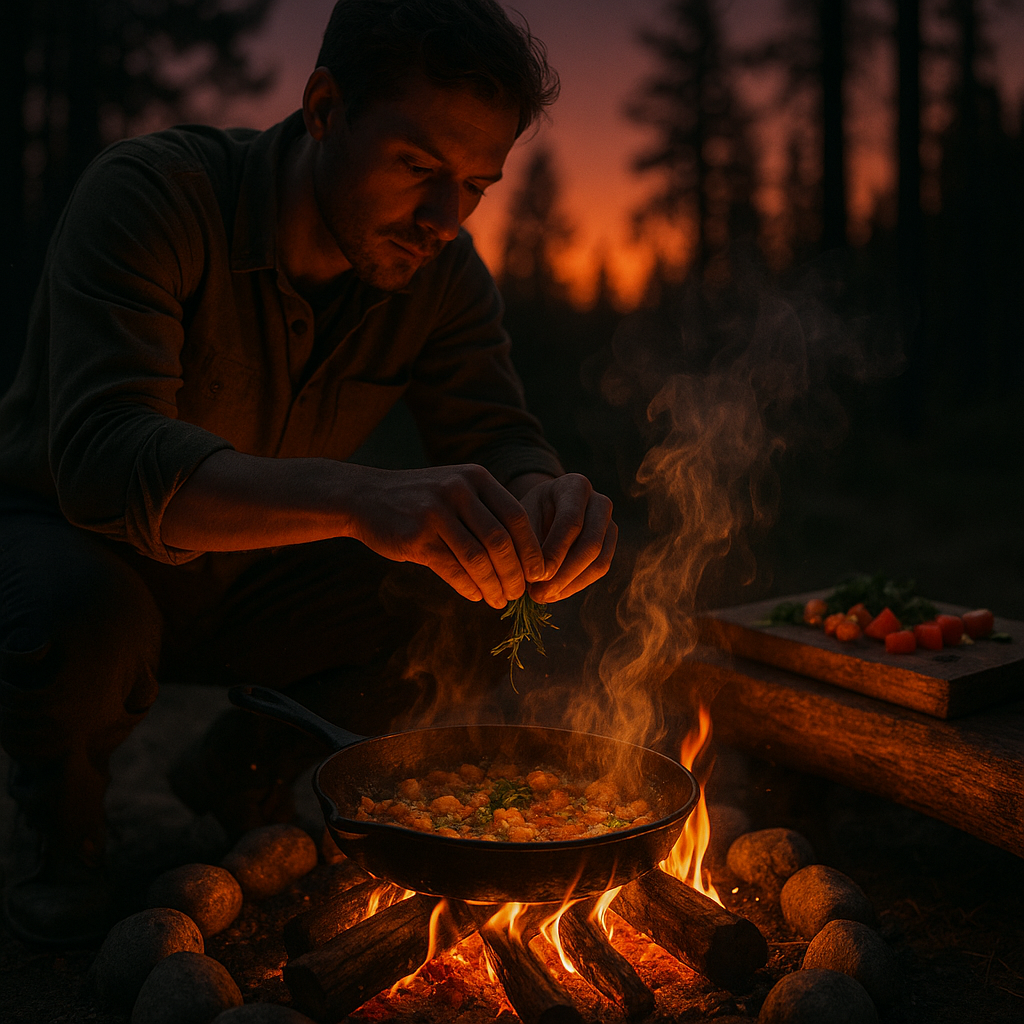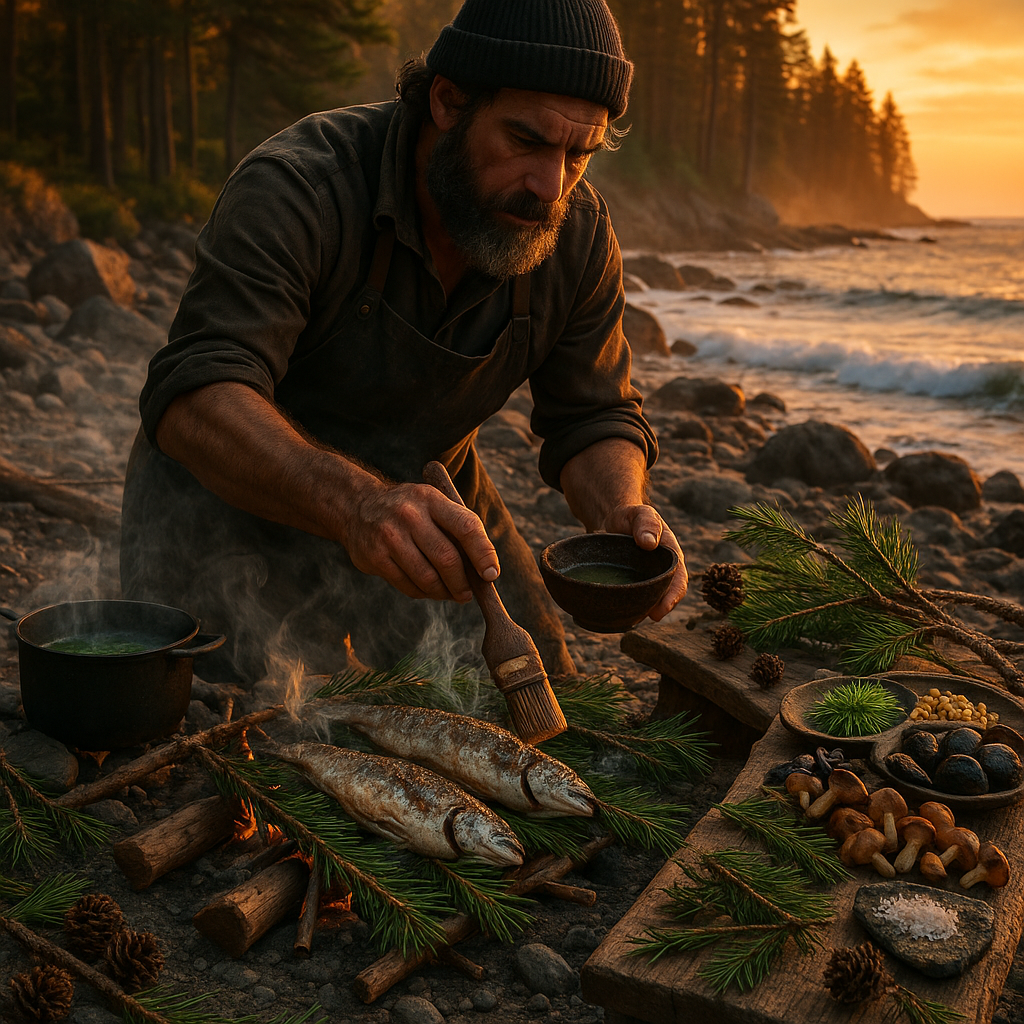Key Takeaways
- Cooking transcends technical skill, embodying artistry, philosophy, and deep emotional connection.
- Cooking tells emotional stories. Beyond ingredients or technique, it mirrors personal experiences and feelings, much like a novelist or painter reveals meaning through their craft.
- Passion ignites true culinary excellence. Top chefs attribute achievement to heartfelt devotion rooted in personal histories and love for food, not just technical mastery.
- Tradition and innovation harmonize in the kitchen. A strong culinary philosophy honors time-tested methods while encouraging personal creativity, empowering cooks to respect heritage yet express individuality.
- Respect for food starts in the kitchen. Maintaining a clean, intentional workspace reflects care for both the ingredients and the cooking craft itself.
- Underlying philosophies bridge art and cuisine. As artists shape their creations with guiding principles, so too do chefs, from ingredient selection to plating.
- Cooking rituals foster human connection. Preparing food becomes a way to connect deeply with cultural history, loved ones, and oneself, elevating it above routine.
- Your personal philosophy guides your style. Cooking rooted in your values, heritage, and emotions makes every meal authentic and meaningful.
- Passion transforms food into a universal language. Driven by passion, cooking bridges cultures and languages, forging shared moments of joy and understanding.
Cooking is infinitely more than a mechanical process. It is a timeless ritual that braids memory, creativity, and connection into each meal. In the sections ahead, discover how to cultivate your own distinctive cooking philosophy, infusing your culinary journey with deeper intention, tradition, and innovation.
Introduction
Every meal is a living narrative. Behind each remarkable dish stands an invisible but vibrant philosophy, shaped by passion, memory, and intention. While recipes provide a gentle hand to guide us, it is our artistry, the rituals we cherish, and the personal stories we pour into each meal that breathe lasting life into our creations.
Embracing your unique cooking philosophy transforms the kitchen from a place of daily repetition to one of profound self-expression, cultural heritage, and connection. By cultivating this perspective, you elevate the act of preparing food into a meaningful ritual, one that honors generations past, sparks new inspiration, and draws people together around the table in shared wonder.
The Essence of Cooking Philosophy
The path to a personal cooking philosophy is much more than learning recipes. It is an evolving dance of tradition, innovation, and heartfelt expression, a process much like an artist finding their own brushstroke. For every cook, this philosophy is shaped by lived stories, cultural legacies, and emotional resonance with food. Engaging in this way imparts soul to the simplest meal, turning daily sustenance into acts of meaning and belonging.
Stay Sharp. Stay Ahead.
Join our Telegram Channel for exclusive content, real insights,
engage with us and other members and get access to
insider updates, early news and top insights.
 Join the Channel
Join the Channel
Personal Heritage as Culinary Foundation
At the root of every deep cooking philosophy are stories and simple memories, a grandmother’s gentle hands shaping dough, the early garden’s earthy scent, or a first taste of spices that bloomed with possibility. These formative influences, whether joyful or hard-won, shape our entire approach to food.
- Emotional Memory: The aroma of wild mint may evoke sunlit afternoons or a long-lost kitchen, weaving emotion into flavor.
- Cultural Integration: Techniques passed down through generations, like hand-rolled pasta or heirloom recipes, become springboards for today’s experiments.
- Value Systems: Early experiences of scarcity, abundance, or communal meals often instill an enduring respect for ingredients and sharing.
Chefs who balance homage to their roots with the courage to invent create the most compelling philosophies. For instance, Massimo Bottura channels his childhood in Emilia-Romagna through radical reinterpretations of Italian classics, blending nostalgia with a forward-looking spirit.
The Mindful Kitchen: Beyond Technique
Culinary philosophy is not just about precise cuts or perfect timing. Instead, true mastery emerges in mindful presence and intention at every stage of the process.
- Respect for Ingredients: Recognize the long journey each element made to reach your table. Whether wild mushrooms gathered at dawn or farm eggs, honoring their story infuses care into your cooking.
- Kitchen Organization: Keeping your workspace intentional and uncluttered enables clarity of mind and smoother creative flow.
- Timing and Rhythm: Developing an inner rhythm, knowing when to stir and when to simply watch, cultivates a meditative, almost musical quality in your craft.
- Waste Consciousness: Valorizing every stem, leaf, and bone not only minimizes waste, but also honors the effort behind each ingredient.
Cooking with presence transforms the kitchen into a sanctuary, turning routine into renewal and each gesture into a ritual of care.
The Balance of Tradition and Innovation
A personal cooking philosophy thrives in harmony, a respect for ancient knowledge, paired with the courage to seek new possibilities. This nuanced balance means:
- Mastering Bedrock Techniques: Understand foundational skills, from breadmaking to fermentation, which form a shared culinary language across cultures.
- Preserving and Evolving: Discern when to stay true to tradition and when to reinvent, depending on the dish, the moment, or your own creative impulse.
- Confident Experimentation: Developing the self-assurance to try new approaches while valuing the wisdom of the past.
- Signature Storytelling: Every original dish is a bridge between what came before and what could be.
René Redzepi at Noma, for example, draws on centuries-old Nordic preservation while fearlessly reimagining local ingredients for a new global audience. This dynamic interplay is also echoed across other fields: in healthcare, blending established protocols with new holistic techniques; in education, combining time-honored teaching with digital tools; in environmental science, merging indigenous knowledge with modern data models.
Passion as the Essential Ingredient
Technique and tradition set the stage, but it is passion that brings food fully alive. This devotion shows through:
- Deep Engagement: Persistent curiosity, a willingness to fail and learn, and pleasure not just in the outcome but in the process itself.
- Personal Expression: Whether through a signature stir-fry, a slow-simmered stew, or a lattice pie, cooks give voice to their own stories and feelings.
- Continuous Evolution: Seeking out unfamiliar ingredients, learning from new cultures, and refining your craft as lifelong pursuits.
Across industries, passion works as a driving force: in finance, professionals who love their field are more likely to devise creative risk models; in marketing, passion for customers leads to campaigns that truly resonate.
The Social Dimension of Cooking
Beyond flavor and texture, food is perhaps humanity’s oldest tool for connection. A thoughtful approach to cooking recognizes:
- Sharing Knowledge: Lessons learned become legacies passed on, whether through teaching children a family recipe, or coaching a team of young cooks.
- Building Community: Meals draw people together, from bustling market picnics to cozy lakeside feasts at sunset.
- Cultural Exchange: Openness to global culinary traditions and new perspectives enriches both understanding and taste.
- Storytelling Through Dishes: Cooking becomes a language to share histories, triumphs, and dreams.
This social aspect finds echoes outside the kitchen, such as collaborative work in healthcare teams, legal partnerships, or interdepartmental cooperation in technology.
Environmental Consciousness in Cooking
Modern cooks are increasingly called to connect their philosophy with stewardship of the earth.
- Seasonal Cooking: Letting nature’s cycles shape your menu inspires creativity while reducing environmental impact.
- Local Sourcing: Championing local farmers, foragers, and fishers strengthens community and deepens the integrity of every meal.
- Sustainable Practice: Striving to use food efficiently (nose-to-tail, root-to-leaf) aligns with zero-waste ideals seen in top restaurants and eco-conscious businesses alike.
- Ethical Choices: Curating ingredients with attention to labor, ecosystem, and supply chain invites broader responsibility.
These themes resonate across industries. In retail, sustainable sourcing is a mark of ethical leadership, while in environmental science, resource optimization echoes the ethic of whole-ingredient cooking.
The Ritual of Fire and Flame
Of all the elements, fire is the oldest culinary partner, transforming raw bounty into soul-nourishing food, and gatherings into celebration.
Mastery of Elements
Developing a relationship with heat, whether open flame, glowing coals, or the blue flicker of a camp stove, is a lesson in adaptability and intuition.
- Grasp how wood smoke, embers, and direct flames impart unique flavors and textures.
- Learn to read fire’s cues: the snap of twigs, scent of caramelizing sugars, and shifting shades of heat.
- Hone timing and touch, protecting fragile fish over gentle smoke or searing wild game on cast iron.
- Respect





Leave a Reply